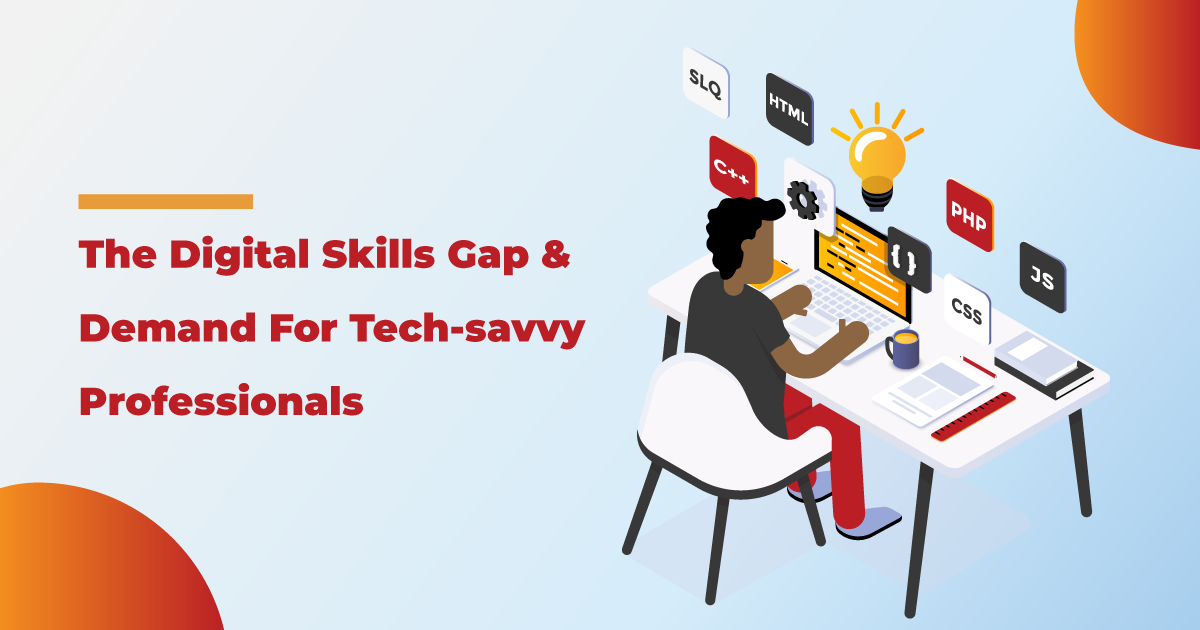Professionals with tech-savvy skills are in high demand, but there is a shortage of workers with these qualifications. The good news is that this presents an opportunity for anyone who wants to work in tech.
Here we’ll discuss the digital skills gap and why it exists. We will also explore the different types of jobs available in the tech industry. If you’re looking for a new career path, read on.
Table of Contents
What is the digital skills gap and what are its effects on businesses and employees alike?
The digital skills gap is a phenomenon that exists in many countries around the world, including Kenya. It refers to the shortage of qualified workers who have the technical skills and knowledge needed to thrive in today’s digital economy.
This has significant implications for businesses, as they struggle to find qualified professionals with the right expertise to fill their open positions. At the same time, employees are also affected by this digital skills gap, as they may be unable to access job opportunities or advance their careers due to a lack of digital skills.
How did we get to this point, where there is such a demand for tech-savvy professionals?
Many factors have contributed to the digital skills gap not only in Kenya but across the globe. For one, digital technologies are rapidly evolving and changing, which means that professionals need to continuously learn new skills to stay up-to-date.
Additionally, the digital economy itself is growing at a rapid pace, creating more opportunities for tech workers than ever before. Overall, there is high demand for skilled digital specialists, but not enough people with the right qualifications to fill these roles.
What can be done to fill the digital skills gap and close the employment divide?
There are some strategies that organizations and individuals alike can adopt to close the digital skills gap. For example, businesses can invest in training programs and other educational initiatives that help workers develop digital skills.
At the same time, individuals can take it upon themselves to learn new digital skills through online courses or other self-directed learning opportunities.
With online courses, this is where Moringa comes in. Moringa School is a multi-disciplinary learning accelerator committed to closing the skills gap in Africa’s job markets by delivering transformative tech-based learning to high-potential job seekers, and on graduation connecting them to local and international employers who desire high-quality tech talent.

Whether you’re looking to start or advance your career in tech, Moringa can help. So if you’re ready to join the digital revolution, check out Moringa’s courses.
By working together, we can overcome the digital skills gap and create a more equitable economy that benefits everyone.
How can you make sure that you have the necessary digital skills to succeed in today’s job market?
The key to success in today’s digital job market is to invest continuously in your digital skills. This can mean taking online courses, joining professional development workshops, or reading up on the latest digital trends and best practices.
Furthermore, it’s important to stay open-minded about new technologies and be willing to adapt to changing workplace demands. By doing so, you will be well-positioned to thrive and succeed in today’s digital economy.
What types of jobs are available in the tech industry?
There are many different career options available in the tech sector, including software development, web design and development, digital marketing, data analysis and engineering. Whether you want to work for a large tech company, start your own business, or pursue freelance work, there are many opportunities in this dynamic and ever-changing field. So if you’re looking to develop digital skills and build a career in technology, now is the time to take action!
What are some of the best ways to learn new digital skills and stay ahead of the curve?
There are many different ways to learn digital skills and keep up with the latest trends in technology. Some options include:
1. Take online courses to learn new digital skills, such as coding, data analysis, digital marketing, and more with a tech school like Moringa School.
2. Join a social media group or forum to stay up-to-date on the latest trends and best practices in the digital world.
3. Subscribe to digital newsletters and blogs to stay informed about the latest digital news and developments.
4. Attend professional development workshops, conferences, and seminars to learn from industry experts and connect with other digital professionals.
5. Get involved in online communities or volunteer projects that allow you to apply your digital skills practically.
6. Practice, practice, practice! The more you use new digital tools, the better you’ll get at them. Whether it’s through digital projects at work or fun side hobbies, the key is to always be learning and growing.
Ultimately, staying ahead of the digital curve requires being proactive, being on the lookout for new opportunities to expand your knowledge and skill set and finally, a commitment to lifelong learning and continuous improvement in this rapidly changing field.





